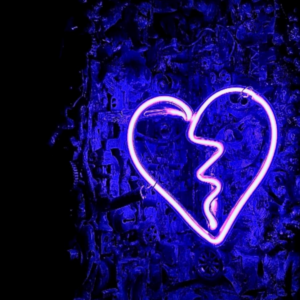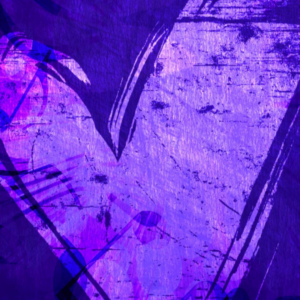Dear Baba,
I sit my mother down this morning to dig from her throat everything about you. I have been hearing about you in bits while peeling cassava with my brother, Ridwan, or while sieving the soaked cassava into a bowl of water, or while sitting down outside when heat beat us out of our rooms. But these pieces don’t suffice. They stress me to forcefully tie histories and memories together. And since I am just a curious boy trying to live in an existence I’m not part of, I sit my mother down to tell me everything about you, because no one knows the size of a man’s penis better than his wife—except for his concubines, if he has any. But you didn’t, I was told.
You were in my stomach when your father died, my mother starts. Baba, the most terrible thing about your memory I try to live in is that it leaves me with curiosities and questions that cannot even be answered by my mother, or my brothers, or anybody at all. Did you know I was in my mother’s stomach before you died? Of course, you did. My mother says she told you she wanted to abort me, but you said no. And I wonder if my existence is even a burden to her. You shouldn’t have stopped her. You should have just let her wash me down the toilet closet, then the weight of all these burdens of existing wouldn’t be on the shoulders of my heart, pressing me down to earth.
When I was born, my mother tells me, our house was filled with a lot of people with the words, our father came back, dragging between their lips. My mother says you were one of the influential people of your time. That you were an Islamic scholar and cleric and you were the second to the first, if not the first, person to be consulted if any issue spun up. Do you see us now? We live a complete reverse of the life you lived. And I wonder (I’m always wondering) if your death took everything with you without caring about your children or your wife. Baba, I’m a writer, and ever since I started writing, I don’t have enough money to buy books as I want, to attend workshops and literary festivals as I want. I don’t have a PC.
As my mother tells me of your memory, she doesn’t flinch. I am trying so hard to find the pain or loss or yearning on her face. But it isn’t there. Her face is as dry as a desert and the story comes out of her mouth as though she doesn’t have a part in it. She calls you Baba. And I ask, why do you call him Baba? He is your husband now. But she doesn’t know why. She just calls you that, and when you were alive, you didn’t caution her. You were okay with being the superior.
My brother told me one day we were peeling cassava at the veranda, and you beat them with sticks ’til they broke urine out. One of the best things they knew about you was the mastery of cane-beating. Maybe they didn’t understand what they were being taught or were being stubborn, but I don’t think beating changes anything. You were only wasting good energy by raising your hand up high before dropping it on their buttocks.
You came five months after his demise, my mother goes on. And this is the point her face changes. It wears colors of grief, each describing a certain thing and moment. Red for your passing. Green for my birth. Yellow for my existence. She still carries the weight of my existence. Baba, you were eighty-four when you died. That means you impregnated my mother when you were between eighty-three and eighty-four. How did that happen? How can an old man like you be so strong to do push-ups? But I’m not concerned. The concern here is yes, you did the push-up and dropped something in my mother’s womb.
I am the something.
I want to ask my mother what pulls up inside her that is so strong, so hard it morphs her face into sadness. Yet, I don’t want her to break the words as they come out of her mouth. I just sit there, on the bed with her, with my jotter in my lap, and listen.
Oko mi, for the first time, Baba, my mother calls you her husband. On moments that bring out your memories from my brothers’ mouths, I never heard them call you father. I know Baba means father. But in Yoruba tradition, Baba is used for an elderly man we don’t know. Calling you Baba makes you a strange person. Why don’t they call you Daddy? This I really want to know because they’ve passed this unto me. I feel awkward when I call you my father or Daddy before my friends. I prefer Baba because that is what they call you.
Baba, I sit my mother down this morning to search for a certain point in your life. But a narration can never be enough if not witnessed. My mother tells me the part of her life you spent with her and what she wants me to hear. She doesn’t know when you were age ten or twenty or thirty. I am twenty-one and in some nine years, I will be thirty, will be thinking of settling down and having a life. But that future looks blurry and does not seem completely good. I know it can’t be totally good, but I really want a good future, not like yours, but a better form. Baba, you had a good future because a lot of legacies have been left, but your children still struggle to live up to it. I don’t want that kind of future. I understand my children too must struggle—not to live up to something, but to build up to it. Who wants a worse life for their children?
As my mother tells me about you, I hope she stumbles on your past, when you were still struggling to live up to something. Was it that easy? My mother tells me you told her that you spent your youthful life seeking knowledge. Baba, I am also seeking knowledge, but we are living a kind of life now where all positions have been filled up even before being created. Were you sure on that path you were treading? How were you so sure? Did something speak into the paths of your ears that, yes, the future looks good? I really wish you could be here to answer these questions.
Do you miss your father? My mother asks.
Why do you say that, Iya Amobi? I ask, placing my palm on her folded hands.
I just want to know, she says.
Of course, I don’t miss you. I have learned to live independently since I was in my mother’s stomach. I only wish you were here to answer those questions and provide solutions to my curiosities. I only wish you were here to assure me that being confused on the journey of life is a process, a stage to live up to. I only wish you were here for me to experience this memory I am forcefully trying to live in. I only wish.
One day we sat on the verandah, and when I said something, my mother said: you just talked like your father. That wasn’t the first time she would say that. But I don’t want it.
I know Yoruba people believe in reincarnation and a come-back. I don’t want it. I don’t want your life. But I wonder how you manage to sneak into my psyche and people sniff out your being from mine. You just acted like your father. You just talked like your father. Look at you, you are walking like your father. I don’t want it because you are a strange person, a Baba.




